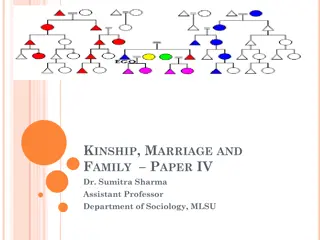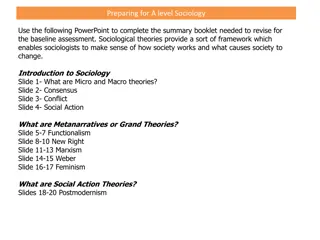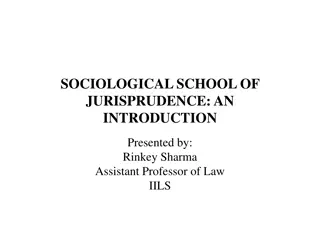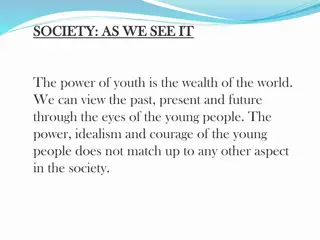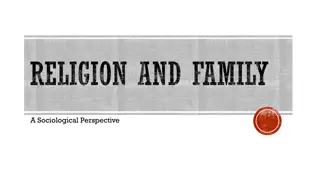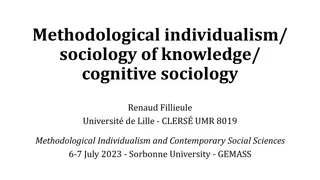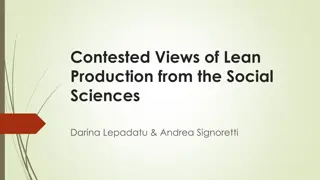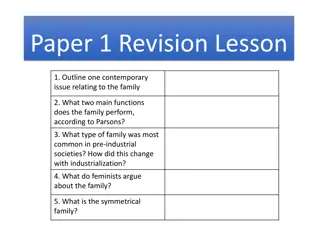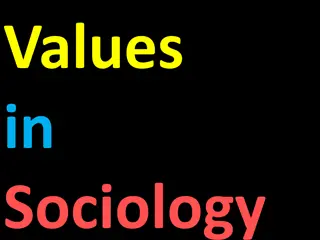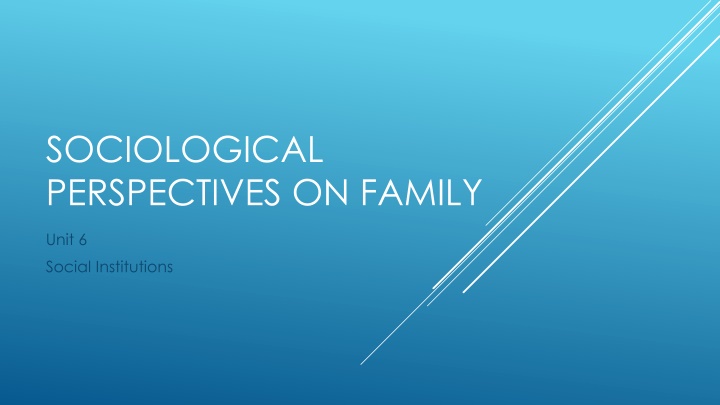
Sociological Perspectives on Family Roles and Functions
Explore the roles and functions of family from different sociological perspectives such as functionalism, conflict theory, and symbolic interactionism. Discover how family plays a crucial role in socialization, socioemotional support, reproduction, regulating sexual activity, transmitting social status, and managing economics in society.
Download Presentation

Please find below an Image/Link to download the presentation.
The content on the website is provided AS IS for your information and personal use only. It may not be sold, licensed, or shared on other websites without obtaining consent from the author. If you encounter any issues during the download, it is possible that the publisher has removed the file from their server.
You are allowed to download the files provided on this website for personal or commercial use, subject to the condition that they are used lawfully. All files are the property of their respective owners.
The content on the website is provided AS IS for your information and personal use only. It may not be sold, licensed, or shared on other websites without obtaining consent from the author.
E N D
Presentation Transcript
SOCIOLOGICAL PERSPECTIVES ON FAMILY Unit 6 Social Institutions
For functionalists family plays many roles Socialization of Young Socioemotional Support Reproduction Regulates Sexual Activity Transmits Social Status Economics FUNCTIONALISM
Socialization: teaches young children what they need to know to participate in society Socioemotional Support: family is a place where one is generally unconditionally accepted and loved Without this children won t develop normally (low self esteem, fear of rejection ) Reproduction: society needs reproduction to survive, family offers an organized means for producing new members THE ROLES OF FAMILY
Regulate Sexual Activity: All society have rules about mating and marrying. Regardless of the culture it is up to the family to enforce the cultures rules about sexual activity Transmit Social Status: Families transmit their social status to their children as well as the values that affect that social status Economics: In today s societies families usually need to pool their resources to buy what they need THE ROLES OF FAMILY CONT
CONFLICT THEORISTS Conflict Theorists focus on how family members compete and cooperate Because throughout history most family structures were based on patriarchy and patrilineal lines, family systems have been built on gender inequality Gender Relationships in the Family According to conflict theorists, males are dominant and in control Females were typically expected to be submissive Women were wageless and dependent on their husbands Feminists and the Conflict Theory Feminists state that women are undervalued in an industrial society Attempts by women to gain power in the family structure results in conflict.
According to Symbolic Interactionists, the key to understanding family is to look at the interactions among family members and the meanings family members assign to these interactions Family s Role in the Development of Self-Concept Socialization begins with the family As families share meanings and feelings, children develop their self-concepts Relationships within the family are constantly changing as the family develops and grows SYMBOLIC INTERACTIONISTS

